
How to Become a Dropship Supplier in 2024
Dropshipping is a business model where you sell products on your ecommerce store without committing the large amounts of working capital required to buy, stock, and ship products to customers. It’s basically an ecommerce fulfillment method that you use to fulfil your orders. So what does that mean to you? You will just need an online store to sell products to your customers. This can be invaluable to new and aspiring entrepreneurs who want to start an online business and find success by selling products online.
If you’re new to the dropshipping industry, you may have heard of the term ‘dropshipping suppliers’ several times. But what does it actually mean? A dropship supplier is a company that sells products to dropshippers and fulfils their online orders.
Whether you’re a retailer who has always dreamed of becoming a dropship supplier or a newbie who wants to learn how to become a dropshipping supplier without any experience, you’re at the right place. We’ve created an in-depth, step-by-step guide that will give you a good start to building your career as a dropshipping supplier.
In this article, we’ll discuss who dropshipping suppliers are, the role they play in dropshipping business, and things you need to know to become a successful dropshipping supplier.
Without any further delay, let’s get started.
What is a dropshipping supplier?
A dropship supplier (also known as wholesale dropship supplier or dropship distributor) is a company that deals in a particular product range. It promotes its products through dropshipping platforms such as Dropshipzone, AliExpress, and Shopify. Retailers rely on suppliers to source products for their online ecommerce store. Apart from supplying products to retailers, dropship suppliers are responsible for managing and storing inventory and shipping products to customers. But they don’t deal directly with customers.
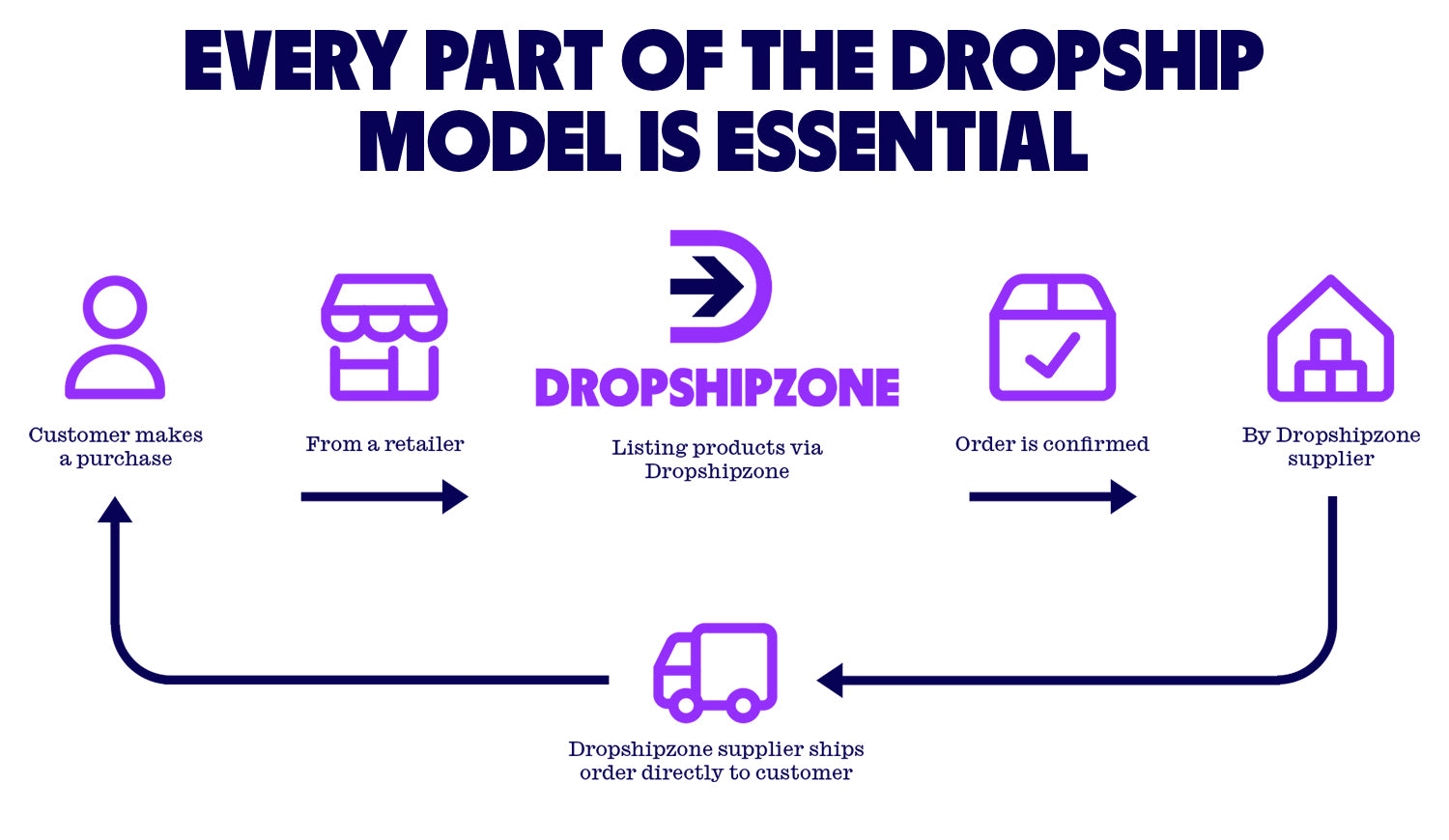
Dropshipping suppliers are essential to every dropshipping business. Without them, dropshipping businesses won't be able to sustain themselves because they won’t have any products to deliver to their customers.
Is your business ready to work with dropshippers?
Now you know what a dropshipping supplier is and its role in dropshipping business. Let's move ahead and determine if your business is ready to work with dropshippers.
In every dropshipping business, a dropship supplier has a crucial role to play. The success of a dropshipping business largely depends on how efficient and reliable a dropship supplier is. Therefore, retailers spend considerable time ensuring that a dropshipping supplier is the right fit for their business.
It’s expected for a dropship supplier to be trustworthy because no retailer would want to work with a supplier that makes promises but fails to keep them. Another important characteristic retailers often look for in dropshipping suppliers is fair pricing. The main goal of dropshippers is to make better profits. If your prices don’t leave enough room for a decent markup, the dropshippers might refrain from choosing you for their business.
Before you reach out to potential dropshippers, here are some questions you need to ask yourself.
Have you found a profitable product to sell?
Profitability is of great significance for manufacturers, suppliers, and retailers. Before you reach out to potential dropshipping retailers for business, you should find a product that can help you and retailers stay profitable. So, how do you find such a product? Look for a product that serves a need. You could conduct a retailer survey and ask questions to understand the market needs. Another way is to determine customer problems because it can help you find a product solution. These simple techniques can help you find profitable products and create potential sales connections.
The role of a dropship supplier is to provide high-quality products at the best price to dropshippers so they can make a good profit. When you’re selecting a product, make sure you choose a product that costs less to purchase from manufacturers. It will keep overhead costs low and promote higher profit margins.
Have you identified your niche?
A niche is a narrow category into which your products fall. Selecting niche products can minimise competition. It enables you to identify the best manufacturers in your niche product category who can provide high-quality products to deliver to your dropshipping retailers. Supplying quality products to retailers will establish trust in your business and products, resulting in increased demand and better sales. This can further facilitate lucrative negotiations with manufacturers.
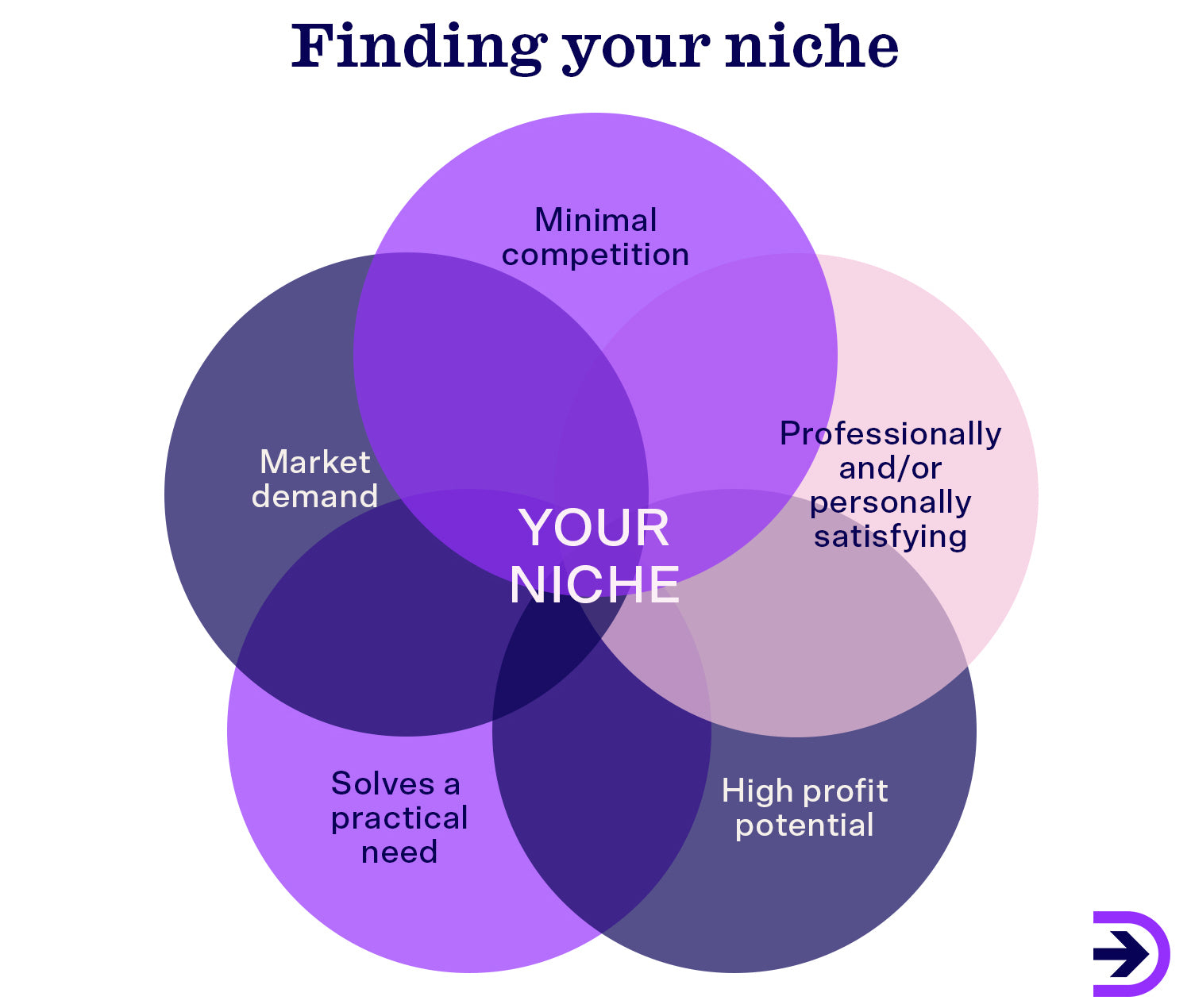
Additionally, supplying a niche product in the market can increase your sales potential because there will be fewer competitors. Dropshippers looking to source niche-specific products will have limited options to choose from, which increases your chances of success.
Do you have the capacity to meet the demand?
Capacity refers to the amount of business you can do over a set period of time, for example, the number of products you can supply or orders you can fulfill. As a dropship supplier, you should be able to meet the dropshippers’ demand without wasting resources. You can get a good idea of your business capacity by knowing what resources and technology you have to complete the tasks efficiently. You can ask dropshippers the number of orders they get in their online store to understand if you can fulfill them.
Of course, demand doesn’t always stay the same. It keeps on changing depending on the seasonality and market trends. For example, restaurants get busiest at mealtimes, accountancy firms get busiest at the end of the tax year, and bars get busiest on the weekends. So, as a dropship supplier, you might need to optimise your capacity to meet the changing demand.
How good is your customer service?
Open and honest communication and good customer service should be at the forefront if you want to build a solid long-term relationship with your retailers and customers. When you provide good service, you’ll be rewarded with loyalty. A happy customer is more likely to return often and spend more. Therefore, focus on promoting a positive, helpful, and friendly environment so that the customers carry a great impression of your brand in their minds.
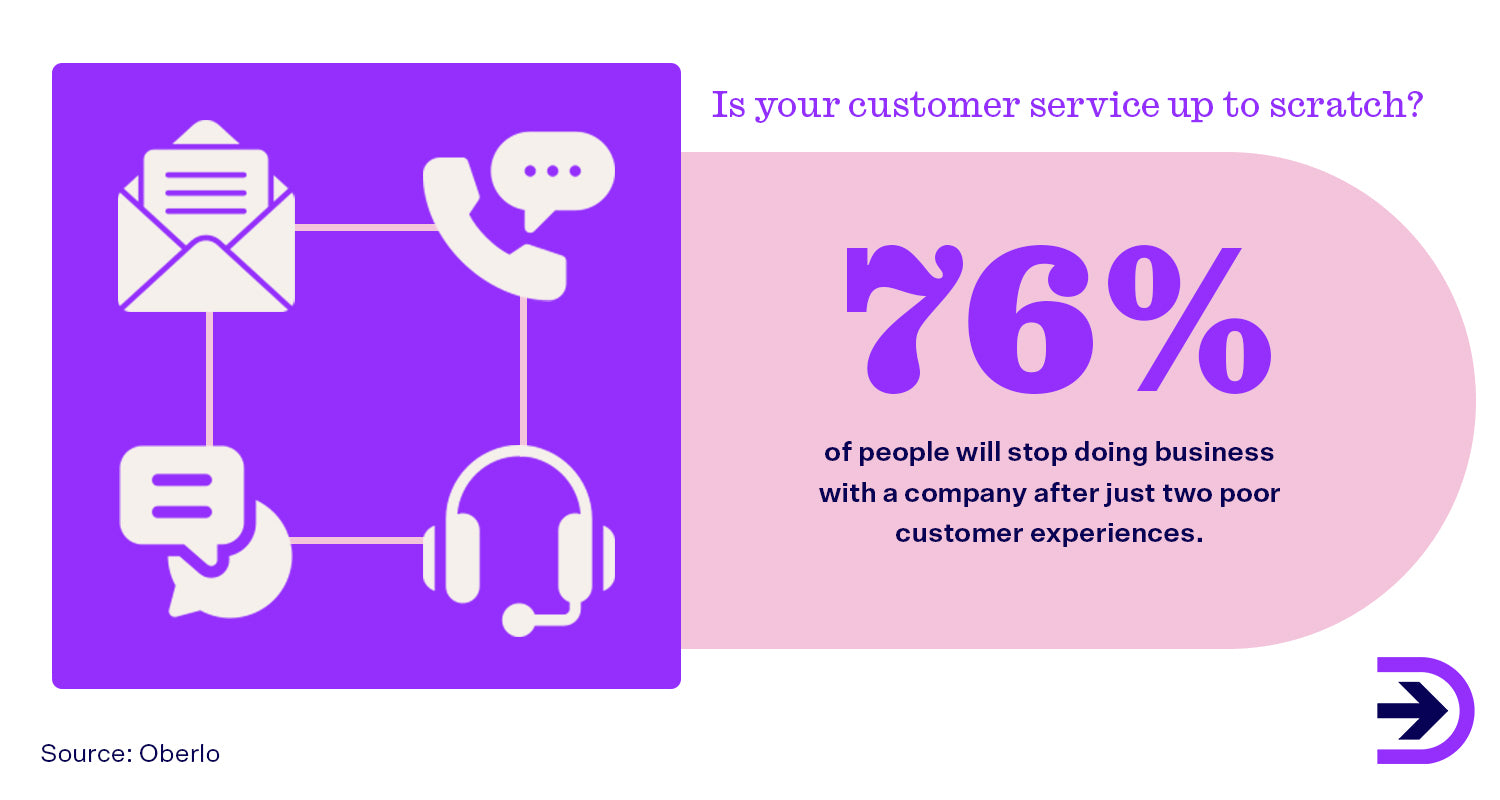
For you to be able to assist your customers effectively, you must be easy to contact. Provide multiple channels through which you can solve customer grievances promptly and efficiently. Additionally, communicate clearly with customers because this can help build trust and reaffirm their relationship with you. For more information on building good customer relationships, read this informative article created by Business Queensland.
What service-level agreements (SLA) can you provide to dropshippers?
A service-level agreement (SLA) is a contract between a dropshipping supplier and its dropshippers that describes or lists the services a supplier must provide to dropshippers. It also specifies responsibilities and priorities a supplier and dropshipper agreed to. Typically, the SLA will set out -
-
Services to be provided
-
Commitment to high standards
-
Acceptable and unacceptable levels of service
-
Timeframe for delivery
-
Metrics associated with supplier’s service and performance
-
Supplier and customer responsibilities
-
Provisions for legal and regulatory compliance
-
Payment terms
-
Process of dispute resolution
-
Confidentiality and non-disclosure provisions
-
Termination conditions
If suppliers fail to meet the agreed levels of service, SLAs provide guidelines for compensation, usually in the form of rebates on service charges.
In what time frame can you ship orders?
Quick delivery is critical for any ecommerce business. The faster you can deliver products to the customers, the higher the chances of return purchases. If you fail to meet customers’ expectations of shipping and delivery, they will abandon the store immediately because they expect convenience and immediacy when purchasing online. So, as a supplier, you need to ensure that arrangements are made for the quick and fast delivery of customers’ orders. It’s best to work out the delivery timeframe with your dropshippers beforehand.
Do you have resources or technology to manage the order fulfilment operations, return, refund, and replacement?
Order fulfillment covers everything from inventory intake and storage to the final delivery of a complete order to the end customer. It also includes return and refund processing. Present-day ecommerce technology and tools are designed to appropriately manage ecommerce order fulfillment operations, including managing and tracking orders, integrating warehouse software, and automatically updating customers about their packages. With the help of modern tools and technology, fulfilling customer orders has become easy, which otherwise would result in a slower and less efficient process.
Getting order fulfilment right is crucial. Several studies have been conducted to understand its impact on business growth and customer relationships.
-
25 per cent of shoppers have cancelled their orders because of slow delivery.
-
38 per cent of shoppers won’t shop with a retailer again if they had a poor delivery experience.
-
53 per cent of shoppers have expressed that quick and fast delivery plays a crucial role in decision-making.
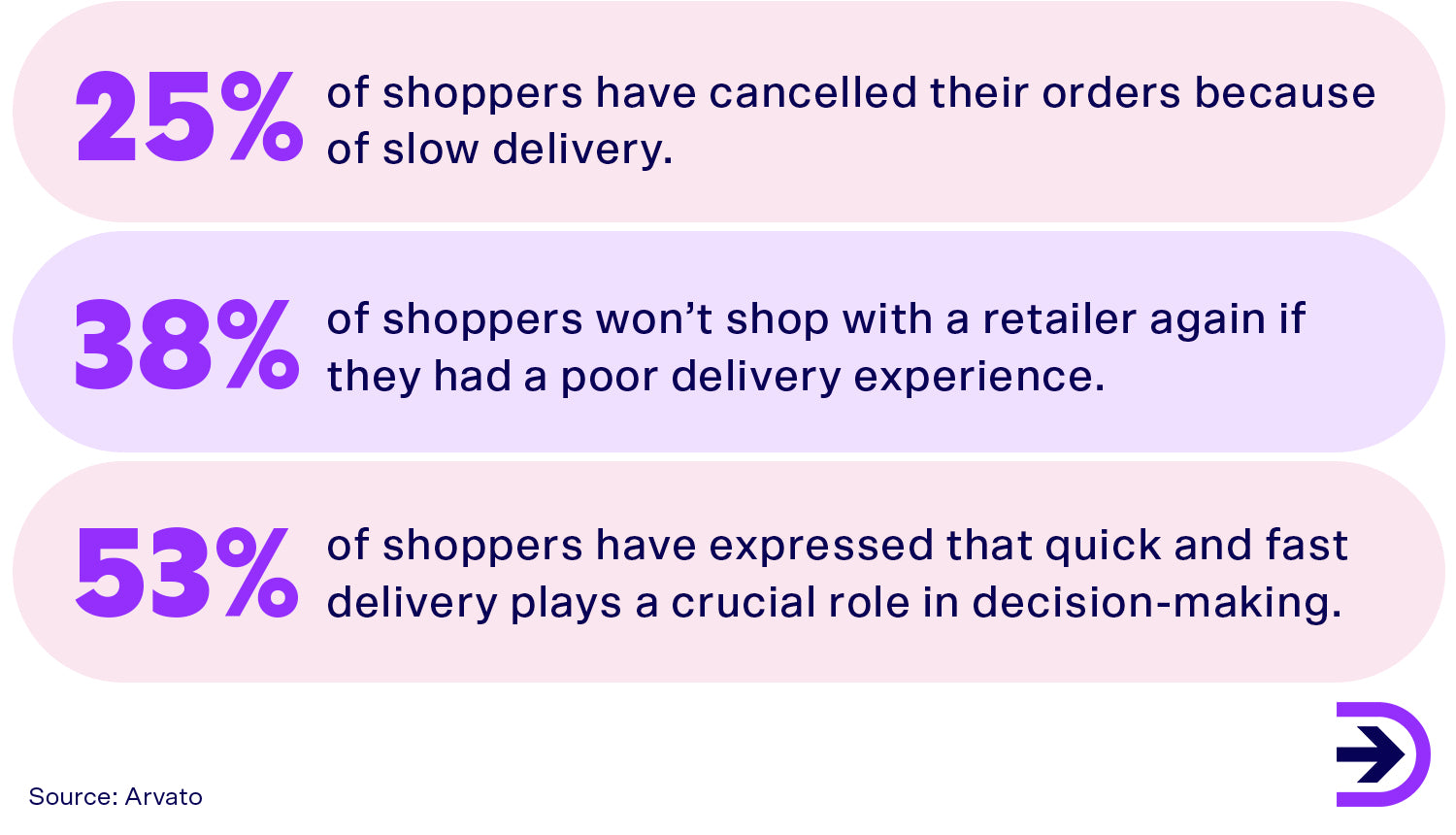
Leveraging technology integrations for your dropshipping business can help boost efficiency, streamline workflows and simplify processes, and enable you to make more accurate decisions.
Four key factors to be a successful dropship supplier
Dropshipping is a straightforward business model - the customer places an order for a product, dropshippers process the order, and the supplier fulfils the order. Though it looks simple, the actual process is quite complicated and requires proper planning and execution for the success of any dropshipping business.
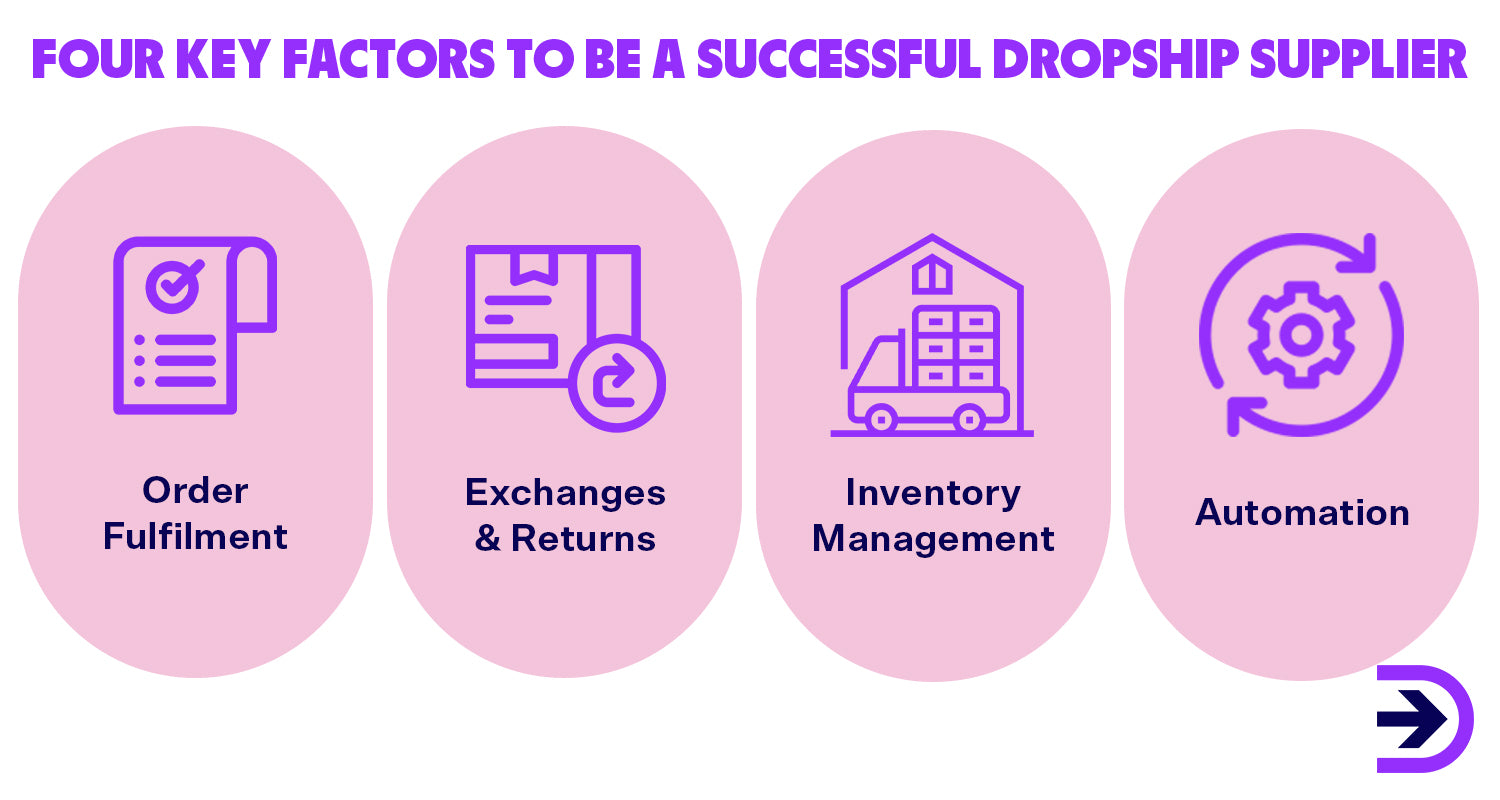
In this section, we’ll discuss the four key factors crucial for the success of your dropshipping business.
Order fulfilment
Order fulfilment is the backbone of any dropshipping business. It encompasses various phases of a product’s journey, from when a customer purchases a product to its delivery at a specified address. The order fulfilment process involves four stages.
Receiving inventory
Getting inventory from the manufacturers is the first step in the order fulfilment process. It refers to receiving and storing inventory at a fulfilment centre. This stage involves counting items to ensure the actual number of items matches the number of items ordered, inspecting products for any damage, entering products in the warehouse management system (WMS), and applying a barcode label to each SKU for identifying and tracking products in the warehouse. For a steady supply of products, you should establish better collaboration with manufacturers.
Inventory management and storage
Inventory management and storage is the next step in the order fulfilment process. It refers to the proper organisation and storage of products. As a supplier, you should keep a systematic record of products to stay up-to-date on products that are out of stock and need to be replenished. It enables you to streamline your demand and supply.
Order processing
After a customer places an order, the order processing begins. This process involves packing and preparing the order for shipping after thoroughly inspecting the products. Order processing should be carried out efficiently to ensure the SKUs match the order and no wrong products are shipped to the customers. Many businesses have invested in automation and technology to make order processing faster and hassle-free and to achieve maximum efficiency. It helps streamline warehouse operations, minimise human intervention, and reduce costly errors. Big names such as Coca-Cola and Amazon have started implementing innovative technologies for faster and more efficient order processing.
Shipping and delivery
The next most important part of the order fulfilment process is the shipping and delivery of products. After the order has been processed, the supplier makes arrangements for shipping the package to the customer. The parcel is sent to a shipping service provider, who determines the best shipping method and cost based on the package weight or dimensional weight (DIM). There are several other factors that affect shipping costs, such as packaging materials, distance from the destination, and shipping surcharges, which you should bear in mind.
Exchanges and returns processing
As a dropshipping supplier, you should also stay prepared for processing returns and exchanges. This stage is called reverse logistics in the fulfilment process. Product returns and exchanges are a normal part of every online business. You should be able to handle return, refund, or exchange requests efficiently because it can influence your brand’s ultimate impression in customers’ minds. Consider designing an efficient exchange, return, and refund policy for your products and put it on your website to make it clear.
Inventory data management and technology
Regardless of the business size, having an organised solution for proper inventory data management is crucial for every dropshipping supplier. Balancing the risks of overstocks and shortages is challenging. With the help of inventory management software, you’ll know how much stock is available, and it’ll alert you when stock is low. This can be extremely helpful in streamlining your demand and supply and preventing hiccups or delays in your supply chain. Besides, as a dropship supplier, you should perform regular audits to ensure your inventory management and storage system works efficiently.
Technology is one of the foundations for success. So you should invest in robust, cutting-edge technology for the smooth functioning of your dropshipping business and providing a favourable customer experience. Modern-day warehouse data management software and solutions that inform you about the details of your dropshipping business are crucial to your success.
Automation
Automation starts with a warehouse management system (WMS). Using software and technology, you can automate manual processes and tasks, manage data, and build more efficient workflows. Investing in warehouse automation can be expensive and complex. However, have you evaluated the consequences of an inefficient warehouse? It could impact your dropshipping business and affect your brand image. Implementing warehouse automation systems can help solve business-specific challenges and strengthen your business. Warehouse automation can improve order accuracy, reduce costly errors, and maximise efficiency. It also helps in optimal inventory management, reduced operational costs, and customer satisfaction.
Next steps if you're ready
Do you think your business is ready to work with dropshippers? If so, you should start thinking about how to make the first best impression to gain more business. Competition can be fierce, and thriving in fast-moving markets can be challenging. One way to make your dropshipping business stand out in a competitive market is by ensuring your product is unique and valuable and providing excellent customer service.
In this section, the expert team at Dropshipzone shares some great tips to defend your market position and build your competitive advantage.
Determine your dropshipping goals
The first and foremost step to becoming a dropship supplier is determining your goals for dropshipping certain products. Ask yourself: What products do you want to sell? Are they trending or seasonal products? Is there a market demand for products? Are you targeting a specific group of people? Defining your reasoning, knowing what products you are selling and why, understanding its market demand, and identifying the target audience is key to starting off on the right foot.
Know the competition
All businesses face competition. With the increased use of the internet to buy goods and services, you are no longer competing only with your immediate neighbours. You should perform competitor analysis to understand your competitors, their strengths and weaknesses, gaps in the market, and customers' frustrations. This will ultimately uncover new opportunities for your business. Furthermore, knowing who your competitors are and their product offerings can help you make your products stand out, improve your offerings, and develop effective marketing strategies.
Set up your marketing
You should have a well-designed marketing strategy for your dropshipping business to become successful because you’re probably not the only person selling a particular category of product. There will be multiple suppliers in the market competing with your business. Designing effective marketing strategies can help your business to stand out from the competition.
Furthermore, marketing your dropshipping business can help create brand awareness, build trust, and attract potential dropshippers. Make sure you highlight your products by drafting accurate product descriptions that describe your product in a way that differentiates you from other suppliers. You should also invest in professional product photography. Clear and high-definition images help dropshippers to see your products clearly, which can further influence their decisions.
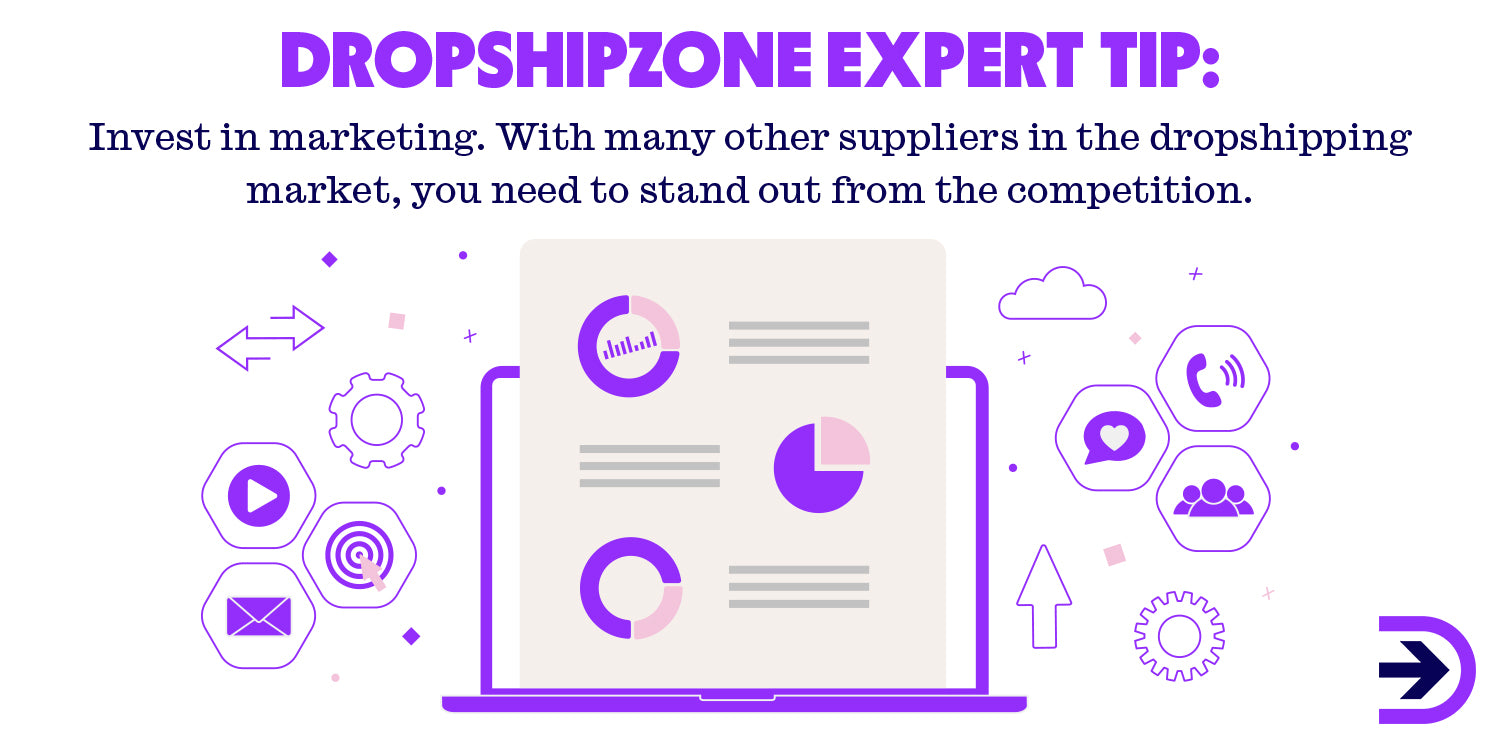
When you partner with Dropshipzone, we help you reach hundreds of dropshippers by promoting your business through our weekly newsletters, websites, and other marketing materials. This makes it easy to get business when you’re just starting out.
Improve your business skills
When thinking about starting an online business, we focus on tasks that need to be accomplished, but we rarely think about the skills required to run the business effectively. Before leaping into action, you should work on improving your business skills. The following are some professional business skills that can help you to become more successful as a dropshipping supplier.
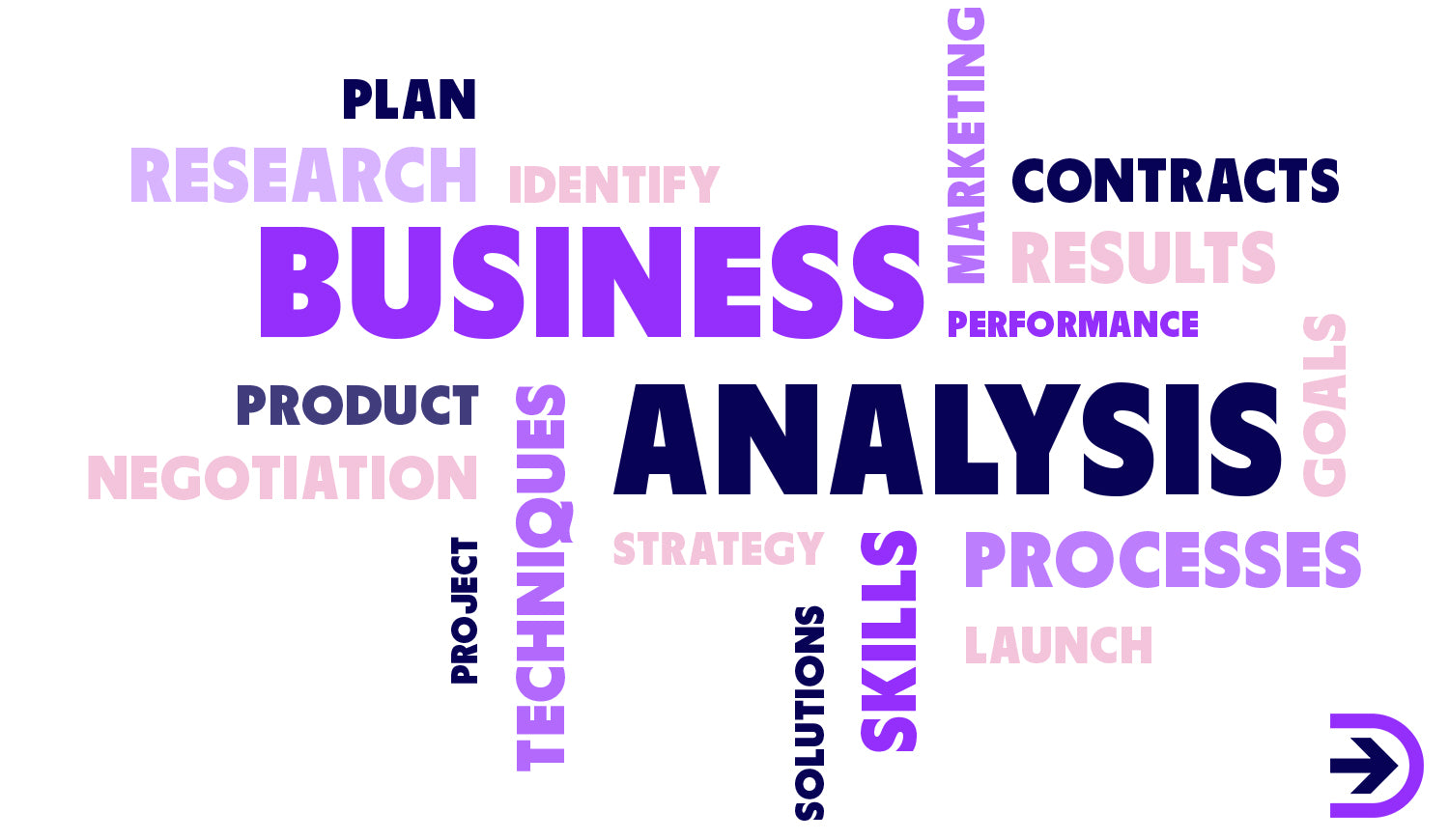
Business analysis and research skills
Business analysis and research skills are essential when starting an online business. Even basic things like selecting the right product to sell and identifying your target audience require a great deal of research, planning, and analysis. Additionally, after launching your business and performing your digital marketing strategies, you’ll need to track the results and analyse them to see if your marketing efforts are making any difference.
Negotiation skills
Negotiation skills will come in very handy when running your dropshipping supplier business. Negotiation skills such as persuasion and strategising can help you negotiate contracts and find mutually beneficial solutions. Through negotiation, you can try to get the buying price as lowest as possible to keep product prices attractive to dropshippers and customers.
Networking skills
Building connections with the right people at the right time can take your dropshipping business to the next level. It can open doors to new opportunities that might be otherwise out of your reach. Through networking and growing your connections, you can find dropshippers and manufacturers to get your dropshipping business running. Consider joining webinars and conventions related to your business to expand your business connections.
Management skills
Effectively managing your business operations can help your dropshipping business to prosper. As a dropship supplier, you may have to hire, train, and manage employees and oversee marketing and finance operations. You should be able to manage your warehouse operations for the smooth functioning of your business and achieving maximum productivity.
Communication skills
Clear and honest communication is key to the success of your dropshipping business. As a dropship supplier, you’ll need to communicate effectively with dropshippers, manufacturers, and customers to establish and nurture business relationships. You’ll require strong verbal and written communication and interpersonal skills for effective communication and to get your viewpoints across and build rapport with your customers.
Communicate with dropshippers
The next step is communicating with your dropshippers. It’s one of the ways to establish and develop business relationships. Contact dropshippers and provide them with your product catalogue. Ensure that your product pricing is competitive so they can order through you instead of your competitors. To nurture your relationship with dropshippers, you should regularly communicate with them and ask about their needs and challenges to ensure their satisfaction.
Whether you’re a retailer dreaming of becoming a dropship supplier or a newbie who wants to become a dropship supplier, Dropshipzone is here to help you find your path to success. We’re Australia’s first B2B2C marketplace, empowering Australian SMEs to start and scale. Through Dropshipzone, you can reach thousands of Australian stores, from the biggest names in traditional and online retail to smaller independent Retailers.
To be eligible as a Supplier with Dropshipzone, you’ll need to:
-
Have an active ABN or ACN account
-
Hold physical inventory in Australia with dropship capability
-
Provide a minimum 12-month product warranty
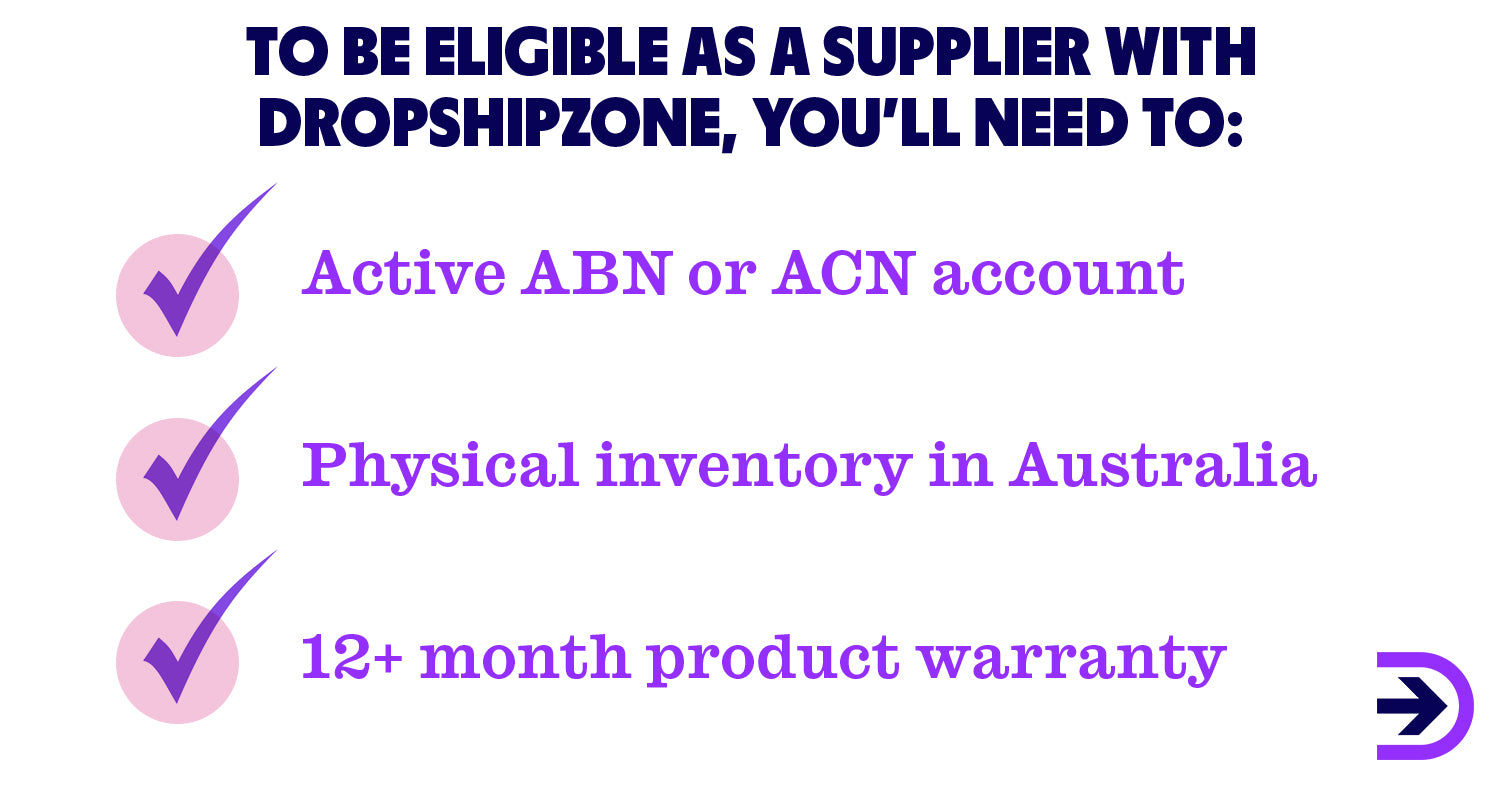
If you fulfil the above conditions, you can submit your interest to work as a dropship Supplier at Dropshipzone. Once you’ve submitted your application, we’ll circulate our Supplier registration form and T&Cs and undertake a quality assessment. We evaluate all Suppliers on a case-by-case basis. After your application is approved, you’ll become eligible to sell on Dropshipzone, and your products will become available for all Dropshipzone Retailers to sell to their customers.
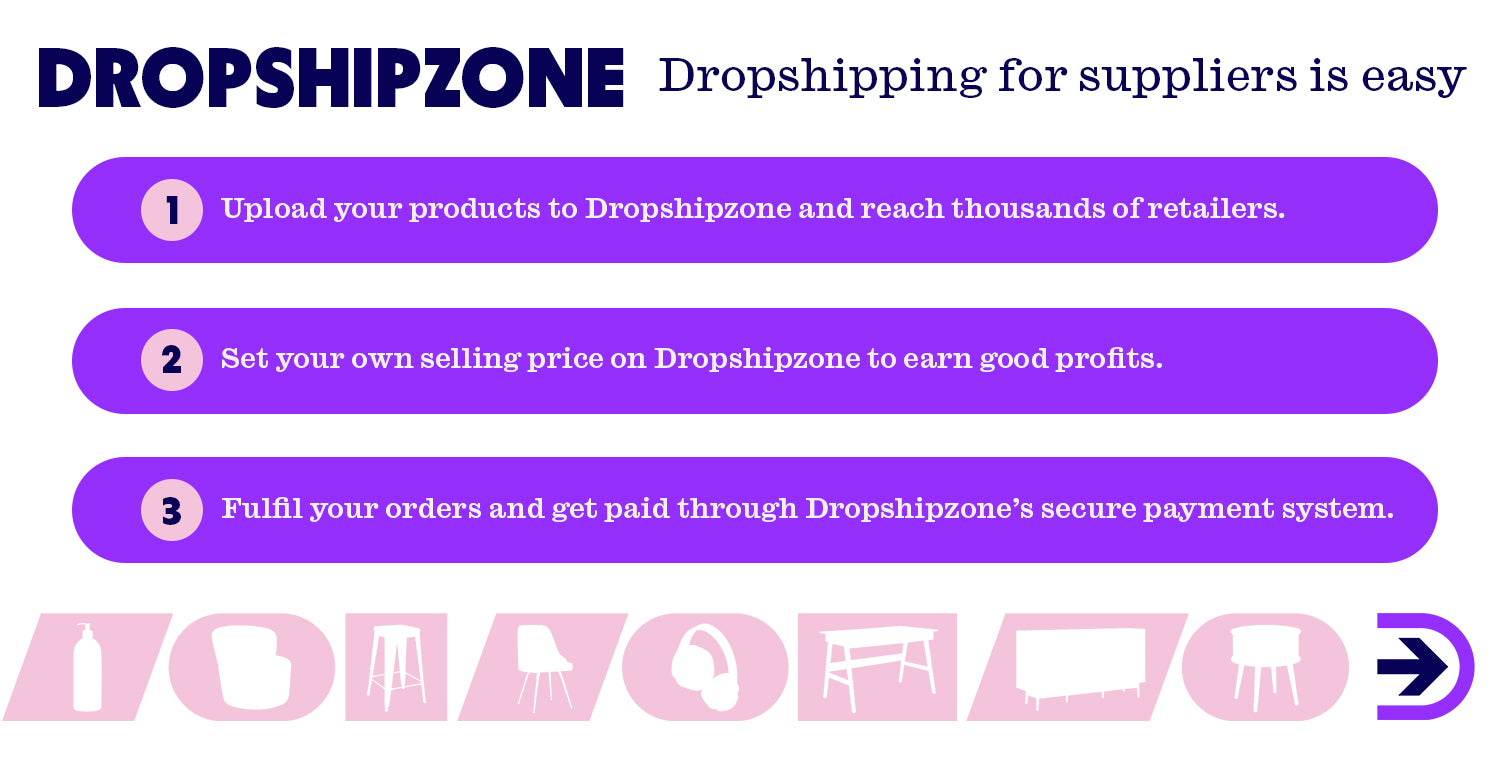
For more information on becoming the Dropshipzone Supplier, drop us a line at supply@dropshipzone.com.au or visit our FAQ page to find answers to the most common questions. Alternatively, you can contact our customer service team to get your questions answered.










